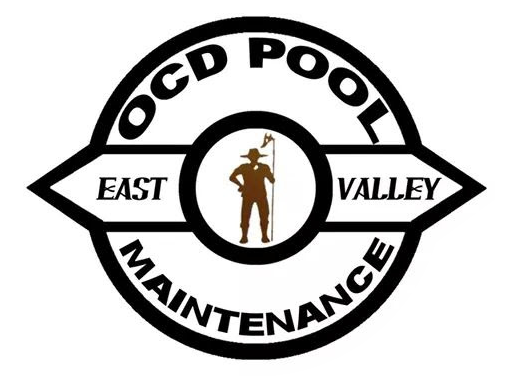A strong chlorine smell from your pool might not mean it’s clean. It could be a sign of a bigger problem. Chloramines, made when chlorine meets sweat and body oils, are often the cause of this smell.
If you don’t fix this, your Queen Creek pool could become unhealthy. This could lead to eye problems, breathing issues, and more. Keeping your pool well-maintained is key to getting rid of these smells and making swimming safe and fun.
Key Takeaways
- Chloramines are a common cause of strong chlorine smells in pools.
- Shock treatment can help break down chloramines and restore proper sanitation.
- Regular pool maintenance is essential for preventing unpleasant odors and maintaining a healthy swimming environment.
- Poor pool hygiene can lead to health issues, including eye irritation and respiratory problems.
- Proper chlorine management is key to eliminating chloramines and associated odors.
Understanding Common Queen Creek Pool Odor Causes
Finding out why your Queen Creek pool smells is key to fixing the problem. A smelly pool isn’t just annoying; it shows there’s a bigger issue. This issue can harm the health and safety of the water.
Chloramines are the main culprits behind a smelly pool. They form when chlorine mixes with organic stuff like sweat, urine, or debris. Things like lots of swimmers, wrong water chemistry, poor water flow, and not cleaning enough contribute to chloramine buildup.
- Heavy swimmer traffic: More swimmers mean more sweat and body oils entering the pool, which can react with chlorine to form chloramines.
- Imbalanced water chemistry: If the pH, alkalinity, or chlorine levels are not within the recommended ranges, it can lead to the formation of chloramines.
- Poor circulation: Inadequate circulation can result in stagnant areas where chloramines can accumulate.
- Neglected cleaning practices: Failing to regularly clean the pool and its surroundings can lead to the accumulation of debris and contaminants that contribute to odors.
To get rid of pool odors, you need a detailed plan. This includes testing the water often, keeping the water chemistry balanced, making sure water flows well, and staying clean. By knowing what causes pool odors and fixing these issues, pool owners can have a cleaner, healthier, and fresher place to swim.
Testing and Diagnosing Your Queen Creek Pool’s Odor Problem
Understanding the chemistry behind pool odors is key. The first step is to test your pool’s water chemistry.
Use a high-quality test kit to check free chlorine, pH levels, and total alkalinity. These tests show your Queen Creek pool water’s health.
Understanding Your Queen Creek Pool Test Results
After getting your test results, it’s important to know what they mean. For example, low free chlorine levels mean your water isn’t being disinfected well. This can lead to chloramines, which smell bad.
- Free Chlorine: Should be between 1 and 3 ppm (parts per million). Low levels can lead to inadequate disinfection.
- pH Levels: Should be between 7.2 and 7.8. Imbalanced pH can affect chlorine’s effectiveness and cause eye irritation.
- Total Alkalinity: Should be between 80 and 120 ppm. Proper alkalinity helps stabilize pH levels.
Knowing these results is essential for good pool water treatment. By adjusting these parameters, you can stop chloramines from forming and get rid of the smell.
Good water chemistry does more than just get rid of odors. It also makes sure your pool is safe and healthy for swimming. Regular testing and adjustments keep your pool water quality up.
How to Fix a Smelly Pool in Queen Creek?
To fix a smelly pool, you need to shock it, improve circulation, and keep filters clean. These steps target the main causes of pool odors. They make sure your pool is fresh and safe for swimming.
Shocking the pool is a key step in getting rid of odors. It involves adding a lot of oxidizer to the water. This breaks down chloramines, which are made when chlorine meets sweat and body oils. This process reduces the smell by oxidizing these contaminants.
- Use a non-chlorine shock treatment or a chlorine-based shock treatment to oxidize chloramines.
- Follow the manufacturer’s instructions for the correct dosage based on the pool size.
- Shock the pool regularly, specially after heavy use or after a rainstorm.
Improving circulation is also important. It helps prevent chloramines from forming. Good circulation makes sure chlorine spreads out evenly. This reduces the chance of odor-causing compounds.
Keeping filters clean is also key. Clean filters catch debris and contaminants that can cause odors. Regular cleaning and maintenance keep the water clear and clean.
- Clean the filters according to the manufacturer’s instructions.
- Replace the filters as recommended to maintain optimal filtration.
- Backwash the filters regularly to remove trapped debris.
By using these treatment methods, Queen Creek pool owners can greatly reduce or get rid of pool odors. Regular maintenance, including shocking, improving circulation, and keeping filters clean, is essential. It ensures a fresh and clean swimming environment.
Conclusion: Preventing Future Pool Odors
To keep your Queen Creek pool smelling fresh, stick to a routine. Test the water, shock it, and do regular maintenance. This way, your pool will always be ready for a swim.
Understanding why your pool smells is the first step. Then, take action to fix it. Keeping up with maintenance not only makes your pool smell good but also helps your equipment last longer.
By following the tips in this article, you can make your pool a clean and inviting place. Keeping up with maintenance and being proactive will make sure everyone has a great time swimming.
Need Pool Services in Gilbert, Arizona?
Contact OCD Pool Maintenance today to keep your pool in great shape with our weekly pool maintenance services!



